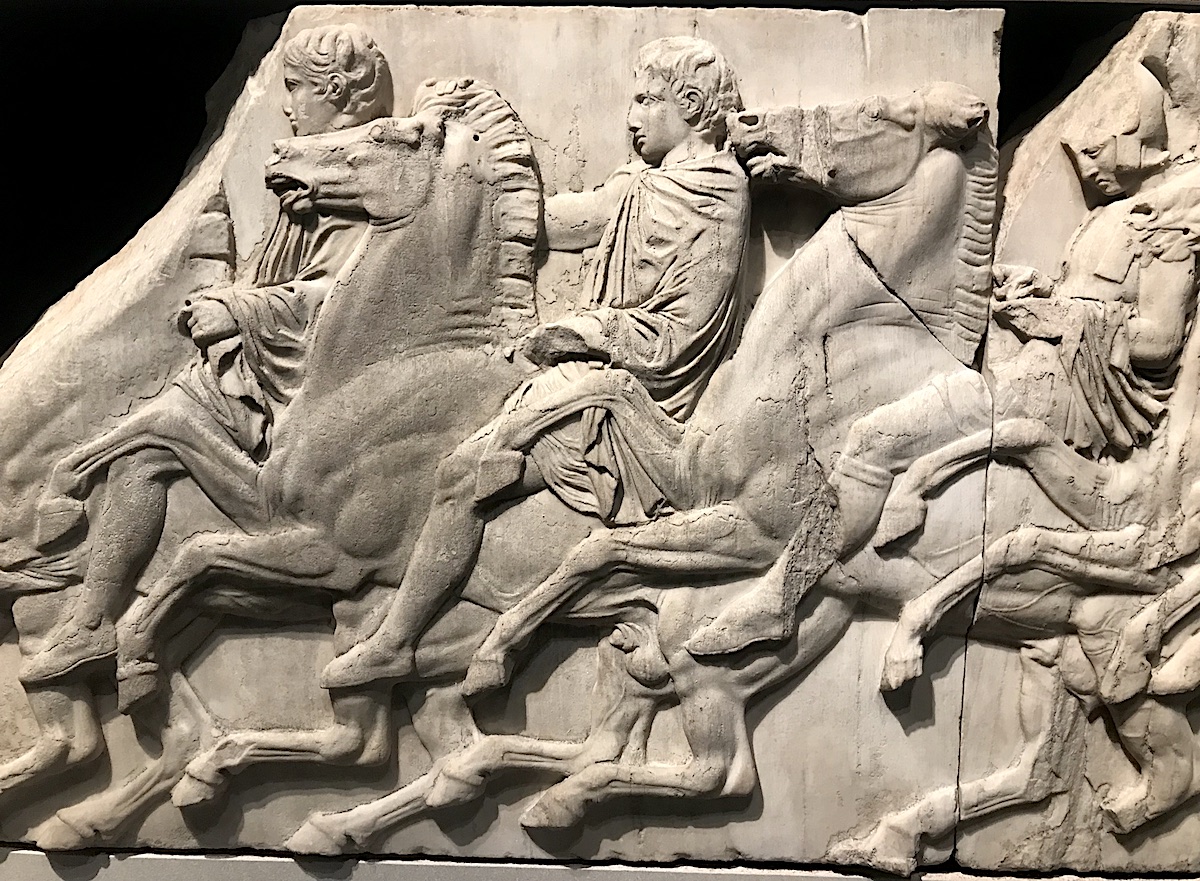Over the last few days, a new dialogue has opened up in light of the theft of 1200 to 2000 objects by a senior Curator at the British Museum. Peter John Higgs, 56, was dismissed this summer, pending a police investigation, after several items were either “missing, stolen or damaged”. Many of the items turned up on the eBay auction website selling for a fraction of their value. The objects were taken over a “significant period”.
Who is Peter John Higgs? Higgs has been a senior curator in the Greek and Roman departments of the BM for over 30 years. He is one of Britain’s top experts on Greek and Roman ancient artefacts. Higgs was Born in Stevenage, Hertfordshire, and now lives in Hastings, East Sussex. He studied archaeology at the University of Liverpool before joining the British Museum. Up until his sacking, he was a popular and trusted member of staff. The British Museum tops London’s attractions list and is the number two most visited museum in the world after the Louvre in Paris. The theft has prompted the resignation of the Museum’s Director, Hartwig Fischer, who is ultimately responsible for the collection under his stewardship. It also raises questions of trust on a whole array of objects in the BM collection, which includes the controversial Elgin/Parthenon Marbles.
Whether the British Museum can be trusted to keep the Parthenon Marbles is a complex consideration of cultural heritage, ethics, and the roles of museums in a global context. Critics suggest that perspectives on heritage have evolved since the Marbles were acquired in 1812-1816, warranting a reevaluation of their ownership and display location.
Talks have been taking place in London since November 2021 between Prime Minister Kyriakos Mitsotakis of Greece and George Osborne, the former chancellor under David Cameron, who is now the chairman of the British Museum.

The British Museum has stated that it has taken great care to preserve the Marbles and provide a safe and controlled environment for their display. They claim that returning the Marbles to Greece could jeopardise their conservation due to environmental factors and potential changes in display conditions.
The debate surrounding the repatriation of the Parthenon Marbles, also known as the Elgin Marbles, from the British Museum to Greece is a complex and contentious issue. While there are differing opinions on this matter, proponents of returning the Marbles often make the following arguments:
The Parthenon Marbles are a collection of ancient Greek sculptures that originally adorned the Parthenon temple on the Acropolis of Athens. They are considered a significant part of Greece’s cultural and historical heritage. Returning the Marbles to Greece would contribute to reuniting this cultural treasure with its place of origin, allowing Greeks to understand their history and identity better.
The Marbles are integral to the architectural and artistic integrity of the Parthenon, which is an iconic symbol of Athenian democracy and ancient Greek civilisation. Placing the Marbles back in its original context would provide a more authentic experience for visitors to the Acropolis and enhance the site’s educational value.
The removal of the marbles by Lord Elgin in the early 19th century has been criticised as an act of cultural imperialism and colonial appropriation. Returning the Marbles to Greece could be seen as a step toward rectifying historical injustices and acknowledging the impact of colonialism on cultural heritage.

The repatriation of cultural artefacts to their countries of origin is supported by international agreements and ethical standards. The 1970 UNESCO Convention on the Means of Prohibiting and Preventing the Illicit Import, Export, and Transfer of Ownership of Cultural Property encourages the return of stolen or illegally exported cultural objects.
Returning the Marbles could foster cultural goodwill and strengthen diplomatic relations between the United Kingdom and Greece. It could be seen as a gesture of mutual respect and cooperation between the two countries.
The Marbles’ return to Greece might lead to increased tourism to the Acropolis and other cultural sites, benefiting the Greek economy and cultural institutions. Some argue that museums must respect the cultural context of their artefacts and consider repatriation when it is reasonable and ethical.
It’s important to note that the debate over repatriation involves complex legal, cultural, and historical factors. Opponents of returning the Marbles may argue that the British Museum provides a global context for cultural artefacts and that the Marbles have been preserved and displayed in a manner that allows people worldwide to appreciate them.
The British Museum says that it cannot repatriate the marbles even if it wanted to; under British law, the museum cannot remove items from its collection unless they are “unfit to be retained,” though it is free to loan objects to other institutions.
Ultimately, the decision to return the Parthenon Marbles involves balancing historical claims, ethical considerations, and the practicalities of cultural heritage preservation.
Words: PCR Photos PCR © Artlyst 2023

